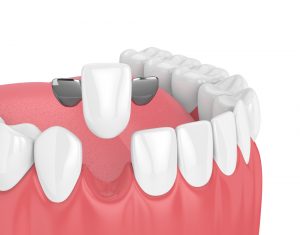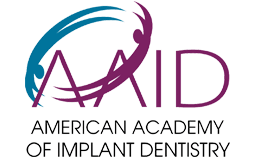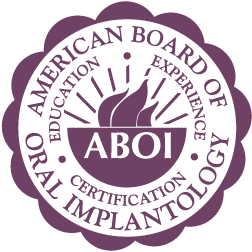Maryland Dental Bridges in Havre de Grace, MD
Please note we may not offer this service at our office. Please contact our dentist for more information at (410) 939-5800.
Please note we may not offer this service at our office. Please contact our dentist for more information at (410) 939-5800.
Maryland dental bridges provide a conservative and reliable approach for those seeking to replace missing teeth. By preserving the natural tooth structure and offering stability, Maryland dental bridges are recommended for certain cases.
Discover more about our Havre de Grace, MD dentist’s insights on these dental bridges by calling (410) 939-5800.
Maryland dental bridges, also referred to as resin-bonded bridges, are a type of dental prosthesis designed to replace one or more missing teeth. Unlike traditional bridges that require dental crowns for support, Maryland bridges use a metal or porcelain framework bonded to the back of adjacent teeth. This framework provides the necessary support and stability for the artificial teeth, eliminating the need for crowns.
Though not as common as traditional dental bridges, some dentists may opt for them to replace front teeth.
Maryland dental bridges come with numerous benefits, such as:
 Key differences between Maryland dental bridges and traditional dental bridges include:
Key differences between Maryland dental bridges and traditional dental bridges include:
The process begins with a consultation with your dentist. During this visit, your oral health will be assessed, and the dentist will determine if you’re a suitable candidate for a dental bridge. They’ll discuss treatment options, including the type of bridge (traditional, cantilever, Maryland, or implant-supported) that suits your needs.

If a Maryland dental bridge is selected, it involves minimal alteration of adjacent teeth. A small amount of enamel is removed to accommodate the bridge. Impressions of your teeth are taken to create a custom bridge that fits perfectly. These impressions are sent to a dental laboratory for fabrication.
While your permanent bridge is being made, a temporary bridge may be placed to protect exposed teeth and gums.
Once the custom bridge is ready, you’ll return to the dentist’s office. The temporary bridge is removed, and the new bridge is checked for fit, comfort, and appearance. Adjustments may be made to ensure a proper fit.
After ensuring a good fit, the dental bridge is bonded to the adjacent teeth using dental cement. For Maryland bridges, this involves bonding a metal or ceramic framework to the back of the adjacent teeth, supporting the pontic (replacement tooth) and keeping the bridge securely in place.
Post-bonding, your dentist will check your bite and make necessary adjustments for proper alignment. It’s crucial to have a balanced bite to avoid undue stress on the bridge and natural teeth.
Your dentist might recommend a Maryland bridge for various reasons, such as:
203 S. Washington Street
Havre de Grace, MD 21078
(410) 939-5800




Maryland dental bridges offer a natural-looking and comfortable fit, restoring both functionality and aesthetics to your smile. Regular oral hygiene and dental visits are essential for the longevity and durability of these restorations. Maryland dental bridges are a valuable option for achieving a complete and confident smile.
Call Family Implant and Reconstructive Dentistry in Havre De Grace, MD, at (410) 939-5800 today to schedule a consultation. We’re happy to meet new and returning patients from the Havre De Grace area, including Perryville, Aberdeen, and Churchville, MD.